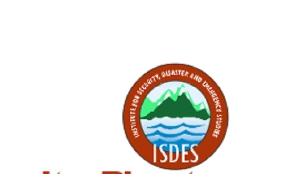The Institute for Security, Disaster and Emergency Studies (ISDES) has received a grant to build the capacities of Non-Profit Organisations (NPOs) in Ghana on measures to protect them from terrorism financing abuse, including the potential misapplication and abuse of measures to limit civic space, access to financial services, and humanitarian action.
The grant also supports ISDES to advance dialogue and engagement between relevant government, financial, and non-profit actors on the design and
implementation of 'Countering Financing of Terrorism' (CFT) measures while safeguarding civic space and principled humanitarian action.
The award is part of the Global Counterterrorism Forum’s initiative on “Ensuring the Implementation of CFT Measures While Safeguarding Civic Space,” co-led by the Kingdom of the Netherlands, the Kingdom of Morocco, and the United Nations, and implemented by the Global Center for Cooperative Security.
CFT has become a critical part of counter-terrorism activities, however, several CFT measures have negatively affected the ability of NPOs to access financial services as banks and financial regulators have tightened regulations on financial flows. This has consequently restricted the civic space and
humanitarian action in many countries.
ISDES is offering three levels of certification courses for staff of NPOs, banks and regulatory agencies. The courses are at Beginner level, with space for 30 participants; Intermediate level with a space for 25 participants; and Advanced level with space for 20 participants.
Twenty NPOs will be supported to set up internal CFT control systems and mechanisms. The courses are free, but places are limited. Interested NPOs and participants are being invited to write to the Registrar: (registrar@isdesghana.org).
ISDES will also engage with government and private sector officials on CFT matters while also fostering channels of dialogue and engagement between Ghanaian regulators and NPOs in critical CFT issues to prevent and mitigate instances of terrorism financing abuse.
It would be recalled that in 2018, Ghana was included on the Financial Action Task Force (FATF) List of Countries that have strategic Anti-Money Laundry (AML) deficiencies and thus subjected to FATF’s increased monitoring process.
In October 2020, the European Union also added Ghana to its list of high-risk jurisdictions with strategic deficiencies in their anti-money laundering and combating financing of terrorism (AML/CFT) regimes. Over the past three years, however, Ghana has made significant progress in strengthening its AML/CFT regime. It successfully implemented an agreed- upon, two-year AML/CFT action plan to ensure its AML/CFT system is effective.
In 2021, international experts indicated Ghana had made significant strides in strengthening its AML/CFT system and put adequate measures in place. In 2022, Ghana was removed from the EU’s list of high risk third countries with strategic deficiencies in their AML/CFT regimes after related technical deficiencies were addressed, including strengthening the legal and regulatory framework to meet the commitments in the FATF action plan. Ghana now has a new AML/CFT policy regime.
However, as the country takes the needed steps to fulfil its international CFT obligations and respond to increasing threats from transnational terrorist and domestic extremist groups, it will be important to expand, not restrict the civic space. NPOs are critical actors in expanding the civic space in Ghana and addressing the conditions that are conducive to violent extremism and terrorism.
However, they do need support and training to put strong financial management systems in place. NPOs in Ghana are generally lean and have little capacity
beyond their core functions, hence, often have weak financial controls and management systems. Hence funding support has been seen as an important and positive development for NPOs in Ghana.
The project will help to advance policies and practices that safeguard the civic space, human rights, humanitarian action, and NPO access to financial services while countering the financing of terrorism.
Regional News of Monday, 8 May 2023
Source: Ishmael Normam, Contributor

















